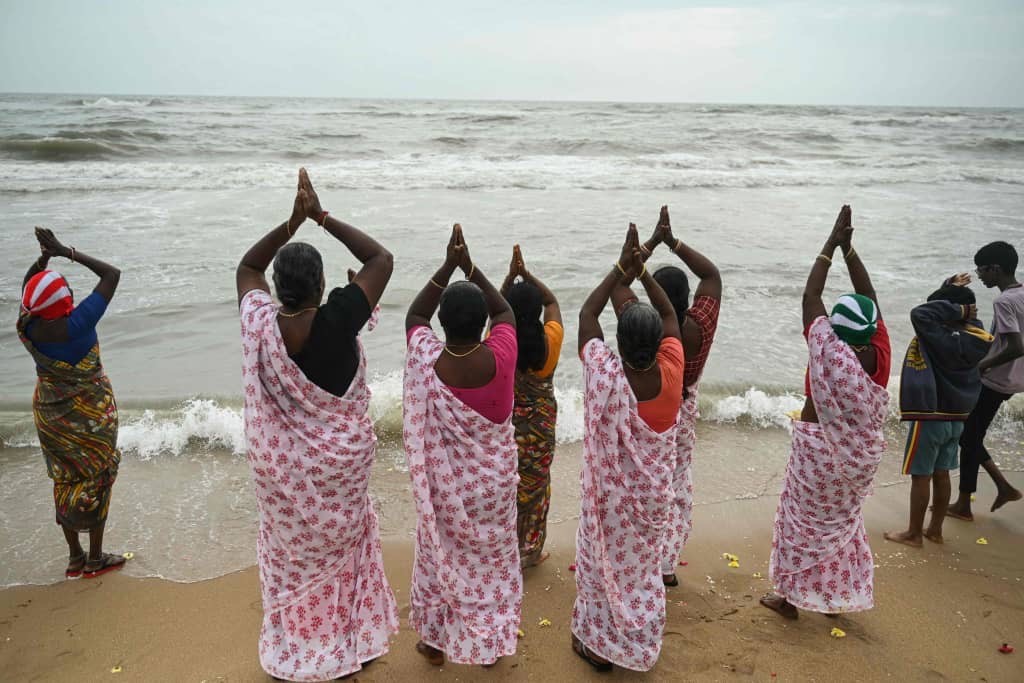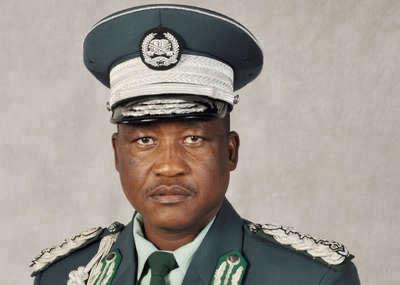Tens of thousands of people from around the world gathered in Hiroshima on Sunday to pray for peace and urge the world to abandon nuclear weapons on the 61st anniversary of the first atomic bombing.
In an annual ritual to mourn the more than 220 000 people who ultimately died from the blast, a crowd including survivors, children and dignitaries gathered at the Peace Memorial Park, near ground zero where the bomb was dropped. “Radiation, heat, blast and their synergetic effects created a hell on Earth,” said Hiroshima Mayor Tadatoshi Akiba.Lamenting a global trend towards nuclear proliferation, Akiba called for a campaign to free the world of atomic weapons.”Sixty-one years later, the number of nations enamoured of evil and enslaved by nuclear weapons is increasing,” Akiba told the crowd gathered under a blazing summer sun.”The human family stands at a crossroads.Will all nations be enslaved? Or will all nations be liberated?” The Peace Bell tolled at 8:15 a.m.- the moment the Enola Gay B-29 warplane dropped the bomb on August 6 1945 – as the crowd stood and bowed their heads for a moment of silence.The United States dropped a second atomic bomb on the southern city of Nagasaki on August 9.Six days later, Japan surrendered.Prime Minister Junichiro Koizumi vowed to abide by Japan’s pacifist constitution and non-nuclear policy.”Japan, the only country that has suffered atomic bombings in the human history, has the responsibility to keep telling the international community about its experience,” Koizumi said.”With the resolve not to let the tragedy of Hiroshima and Nagasaki repeat itself anywhere, Japan has delivered on its pledge not to wage war in the past 61 years.”Under Koizumi, Japan has enacted legislation allowing its troops to play a greater security role abroad and sent soldiers to Iraq on a reconstruction and humanitarian mission, the military’s largest and riskiest operation since 1945.DISTANT DREAM Koizumi’s ruling party and the main opposition party are also seeking to revise the pacifist constitution, whose Article Nine prohibits maintaining a military but which has been interpreted as allowing armed forces solely for self-defence.UN Secretary General Kofi Annan expressed fear that nuclear weapons could fall into the hands of “non-state actors”.”More than six decades after the devastation of Hiroshima and Nagasaki, the unspeakable horror of nuclear weapons remain etched in our collective consciousness,” Annan said in a message read on his behalf during the ceremony.”A world without nuclear weapons may be distant, but it is not a dream,” Annan said.”The worrying possibility of dangerous nuclear material falling into the hands of non-state actors should energise efforts to strengthen the non-proliferation regime.”This year’s anniversary coincided with renewed concerns about nuclear programmes by Iran and North Korea, which last month jolted the region by firing a salvo of missiles.It also comes amid debate, intensified by Koizumi’s visit to Yasukuni Shrine for war dead, over how Japan should view its responsibility for the war and the suffering it caused in Asia.The atomic bomb had killed some 140 000 people by the end of 1945, out of Hiroshima’s estimated population of 350 000.Thousands more succumbed to illness and injuries later.The names of 5 350 people who died recently were added to the list of victims, bringing the total number recognised by the city to 247 787.A few thousand names are added each year.”Cities and citizens of the world have a duty to release the lost sheep from the spell and liberate the world from nuclear weapons,” Akiba said as the cries of cicadas filled the air.Nampa-Reuters”Radiation, heat, blast and their synergetic effects created a hell on Earth,” said Hiroshima Mayor Tadatoshi Akiba.Lamenting a global trend towards nuclear proliferation, Akiba called for a campaign to free the world of atomic weapons.”Sixty-one years later, the number of nations enamoured of evil and enslaved by nuclear weapons is increasing,” Akiba told the crowd gathered under a blazing summer sun.”The human family stands at a crossroads.Will all nations be enslaved? Or will all nations be liberated?” The Peace Bell tolled at 8:15 a.m.- the moment the Enola Gay B-29 warplane dropped the bomb on August 6 1945 – as the crowd stood and bowed their heads for a moment of silence.The United States dropped a second atomic bomb on the southern city of Nagasaki on August 9.Six days later, Japan surrendered.Prime Minister Junichiro Koizumi vowed to abide by Japan’s pacifist constitution and non-nuclear policy.”Japan, the only country that has suffered atomic bombings in the human history, has the responsibility to keep telling the international community about its experience,” Koizumi said.”With the resolve not to let the tragedy of Hiroshima and Nagasaki repeat itself anywhere, Japan has delivered on its pledge not to wage war in the past 61 years.”Under Koizumi, Japan has enacted legislation allowing its troops to play a greater security role abroad and sent soldiers to Iraq on a reconstruction and humanitarian mission, the military’s largest and riskiest operation since 1945.DISTANT DREAM Koizumi’s ruling party and the main opposition party are also seeking to revise the pacifist constitution, whose Article Nine prohibits maintaining a military but which has been interpreted as allowing armed forces solely for self-defence.UN Secretary General Kofi Annan expressed fear that nuclear weapons could fall into the hands of “non-state actors”.”More than six decades after the devastation of Hiroshima and Nagasaki, the unspeakable horror of nuclear weapons remain etched in our collective consciousness,” Annan said in a message read on his behalf during the ceremony.”A world without nuclear weapons may be distant, but it is not a dream,” Annan said.”The worrying possibility of dangerous nuclear material falling into the hands of non-state actors should energise efforts to strengthen the non-proliferation regime.”This year’s anniversary coincided with renewed concerns about nuclear programmes by Iran and North Korea, which last month jolted the region by firing a salvo of missiles.It also comes amid debate, intensified by Koizumi’s visit to Yasukuni Shrine for war dead, over how Japan should view its responsibility for the war and the suffering it caused in Asia.The atomic bomb had killed some 140 000 people by the end of 1945, out of Hiroshima’s estimated population of 350 000.Thousands more succumbed to illness and injuries later.The names of 5 350 people who died recently were added to the list of victims, bringing the total number recognised by the city to 247 787.A few thousand names are added each year.”Cities and citizens of the world have a duty to release the lost sheep from the spell and liberate the world from nuclear weapons,” Akiba said as the cries of cicadas filled the air.Nampa-Reuters
Stay informed with The Namibian – your source for credible journalism. Get in-depth reporting and opinions for
only N$85 a month. Invest in journalism, invest in democracy –
Subscribe Now!







